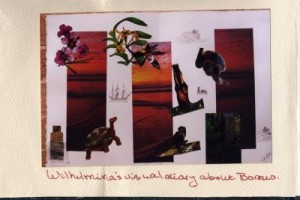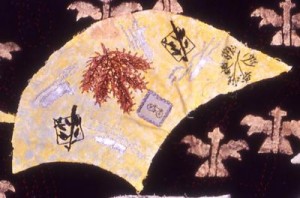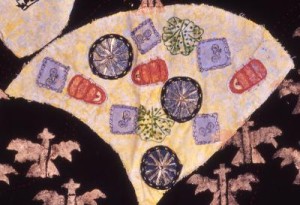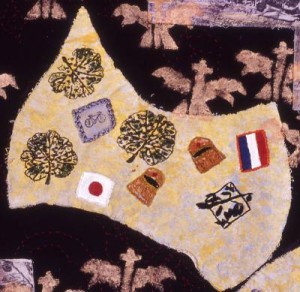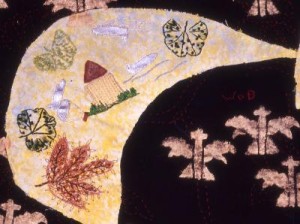Wilhelmina De Brey
These pieces are in memory of those I failed to help survive. I had hoped to save their lives. Through the betrayal of another person, to the secret police, the Kempeitai, our house was invaded. I had received a visit from a woman three weeks before the raid, and from this we had a premonition of danger ahead.
Most people in the area that we lived in had already been interned in prisoner of war or civilian internment camps. I was fortunate to not be interned. My son had a heart condition and my doctor told me that if my children and I went into a camp he would die. I decided to stay out of the camps at any cost.
As I was still living in my house, it was only a short time until the underground found out and asked if I dared to take the risk of helping them. At the time, I was living with two other women and I could not make this decision alone. I had to consult the other women as the youngest of them had a small child too. We agreed to help by allowing people to stay in our home and we became a group of seven men, women and children.
It was soon apparent that we were all penniless, so we decided to start a craft group and I would go around and visit other Dutch people who were still working under the Japanese. But soon those people disappeared into the camps too. We had to rely on the help of Dutch-Indonesian people, and I received all the help that was possible.
This was until a Dutch woman came to visit us and turned out to be a very close friend of a Japanese officer. We had an invasion at the house and the men and women were arrested, myself included. Only my youngest friend was allowed to stay in the house with her little girl and my children.
When I said goodbye to my children, my eldest son was so upset he got a high fever from fright. I asked my girlfriend to look after him. Not knowing that one of the Japanese officers understood Dutch, he asked my friend how many of the children were hers and she answered that she had only one but that I had four. Thankfully, the officer decided that I should stay imprisoned in the house as well.
The hate and hopelessness that we felt during the invasion of our home by the Japanese officers is hard to imagine. Time has softened those feelings but they will never be forgotten.
In these pictures I created three images of this time.
My home with it’s blacked out windows. The Japanese planes would fly over at night and it was very frightening. Later, the Americans would drop supplies of peaches, chocolate and corned beef.
The leaf of the plant Cascare. The seeds were supplied to the Japanese who would then press them and use the oil.
The wheels of my bike. This is how I would travel to the different houses to sell our craft works. Later I would ride to the prison camps to take food to the people who had been taken prisoner from our house. I only definitely know that one of these people died at the hands of the Japanese, but I’m sure some of the others were killed as well. I never found out what happened to them, but I know that one of them listened to news, which was forbidden. I would deliver the news on my bike to all our friends. The news was written on paper, which was folded up and hidden inside a beautiful Chinese ring, which I still have. It has a large red stone and the top opens, hiding a small compartment.
The invasion happened only six months before the end of the Japanese rule, but I failed to save the lives of those people. The war was almost behind us.
